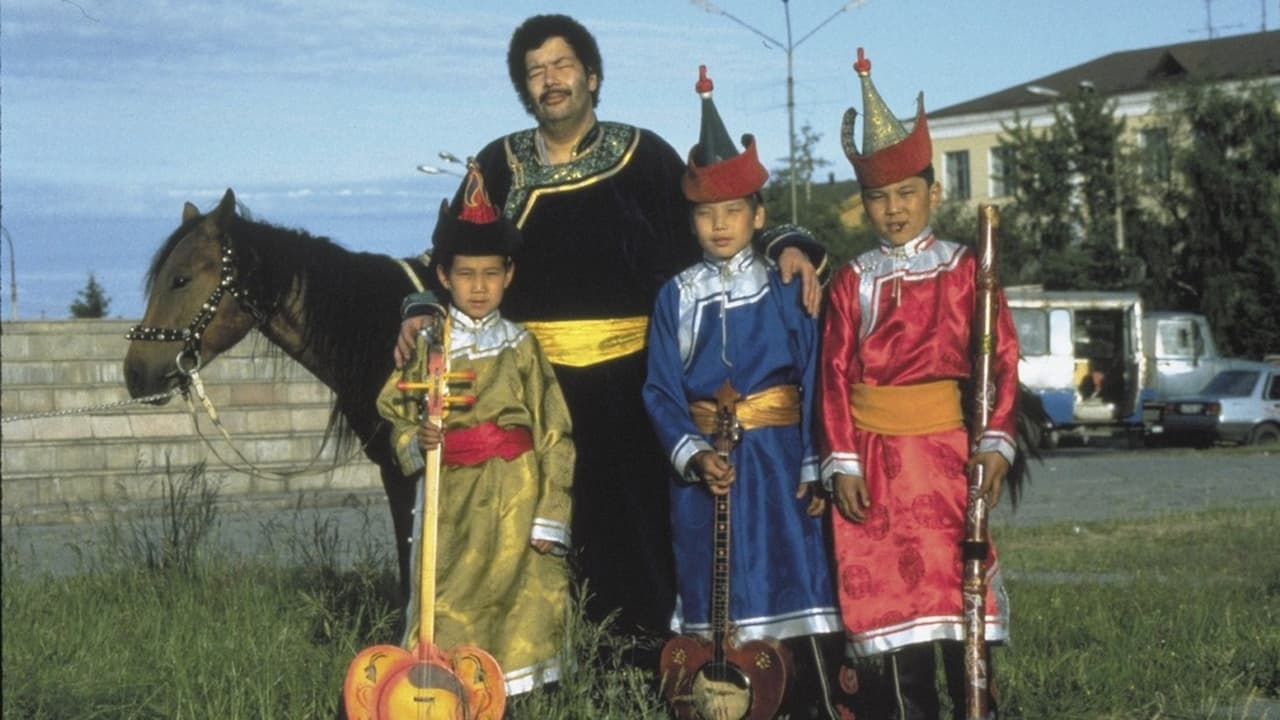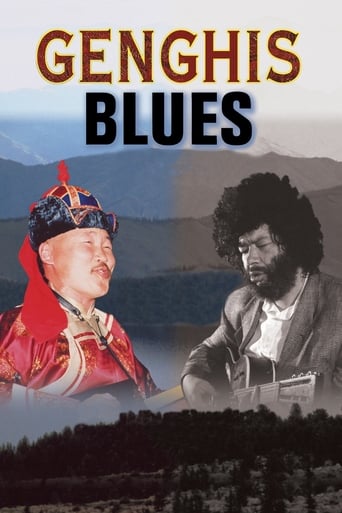StunnaKrypto
Self-important, over-dramatic, uninspired.
CommentsXp
Best movie ever!
Mischa Redfern
I didn’t really have many expectations going into the movie (good or bad), but I actually really enjoyed it. I really liked the characters and the banter between them.
Billy Ollie
Through painfully honest and emotional moments, the movie becomes irresistibly relatable
labotsirc
The story of blind bluesman Paul Pena's trip to the little known republic of Tuva is certainly an unusual one. He learns about Tuvan throat singing by hearing it on a shortwave radio, learns how to throatsing himself. When a Tuvan throat-singing master visits the States, Paul and the singer encounter each other. Along with Friends of Tuva and a small film crew, Paul embarks on a trip to Tuva, meets the throat singer, and enters in a competition. Paul is a remarkably gifted musician, and the film manages to capture that as well as some of the pain, anxiety, and fear that he is feeling. Still, this documentary could have been filmed and edited in more capable hands. How Paul is feeling about his experiences as a blind person in a foreign place is not presented with the kind of power and clarity it could have been presented with. And the feeling arises watching the film that there are many elements to this story that the documentarian is not willing to explore. Still, Genghis Blues is a fascinating record of a meeting of cultures and musical styles.
Raff-3
The blind blues musician, Paul Pena, learns of Tuvan throat-singing by listening to short-wave radio. He is entranced by these unusual sounds produced by the human voice and seeks the source of the voice he heard. His journey takes him to local record stores and, ultimately, to Tuva, a small country just north of Outer Mongolia, where he participates in the Throatsinging contest held there every three years. The actual journey there and home, in 1995, disclose some unique difficulties. However, the effort made by Pena and the fascination of and by the Tuvans comprise the real journey of Pena's mind. We learn some of the beauties of the countryside and feel the warm friendships that develop between Pena and the others who travel with him and the Tuvan people, who are living much as they have for centuries past.Other little gems are included in this heart-warming film, gems which you should discover on your own.I plan to show this movie to my 90-year-old mother, who corresponds with me via email.
Bruce Burns
In 1995, an eclectic group of San Francisco musicians and their friends took a trip to the remote Russian-Mongolian region of Tuva, where one of them entered a throat-singing contest. The whole thing was filmed and this is the result.Paul "Earthquake" Pena is a blind San Francisco blues singer-guitarist-harmonica player who has worked with the likes of B.B. King, Jerry Garcia, John Lee Hooker, Bonnie Raitt, and T-bone Walker. In the early '70's, he made a rock album that included the song "Jet Airliner", later covered and made into a hit by the Steve Miller Band. The important thing about Pena, as far as this film is concerned, however, is that he is a self-taught master of Tuvan-style throat-singing.Throat-singing is a style of singing where one sings two or three notes at once, with some very interesting harmonic effects. As pointed out in examples in the film, the sounds are similar to nose-flutes, Jews-harps, Australian dijeridoos, and leaf-blowers.Pena's adventures begin when he goes to a concert in Frisco given by Kongar-al Ondar, who is described as the Elvis of Tuvan throat-singing. Ondar hears Pena sing and invites him to go to Tuva to compete in a throat-singing contest. A somewhat bizarre organization known as the Friends of Tuva arranges the trip for Pena, his trombone-playing friend, a recording engineer, and an eccentric elderly DJ. They also arrange to have the trip filmed by Roko Belic and his brother.The film is mostly about how Pena wins the hearts of Tuvans by singing traditional Tuvan folk songs, and then combining the singing style with the Delta blues he specializes in. It also concentrates on the friendship that is forged between Pena and Ondar.While this is not exactly top-of-the-line stuff (Hi-Def video just ain't no substitute for film), and we never really learn about anyone besides Pena and the late physicist Richard Feynman, who co-founded the Friends of Tuva, this is truly a fascinating movie, so I gave it an 8.
jbulworth
Paul Pena, blind blues legend learned the sacred art of Tuvan throat singing by listening to it on the radio, and became so good, with his mixture of Eastern technique and Western style, that he earned an invitation to the Tuvan national competition. His journey, never easy, is more moving than most any film I have ever seen.

